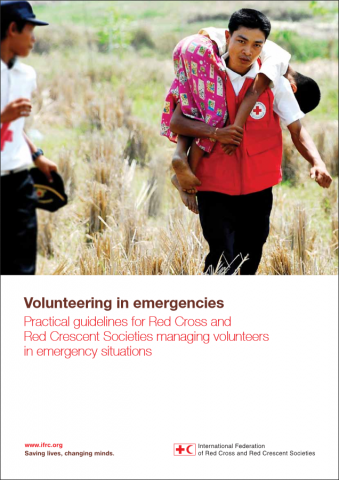Volunteering in Emergencies: Practical guidelines for Red Cross and Red Crescent Societies managing volunteers in emergency situations


Volunteers are our most valued resource. They bring local knowledge and contacts, know the language, customs and operating environments, as well as bring a wide range of skills and capacities to rapidly scale up activities when needed, and sustain these services in the long-term. We must continue to do all that we can to promote and support our volunteers. This guide explores a range of issues and ways in which National Societies can improve the protection and safety of volunteers. It builds on IFRC previous work on legal issues and legislation relating to volunteers including Resolution 4 adopted at the 2011 International Conference, which commits us to work with Governments to improve the legal and social frameworks for volunteers.
IFRC, 2012
